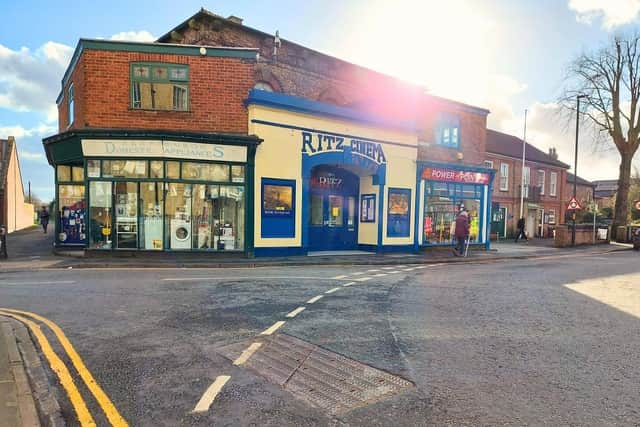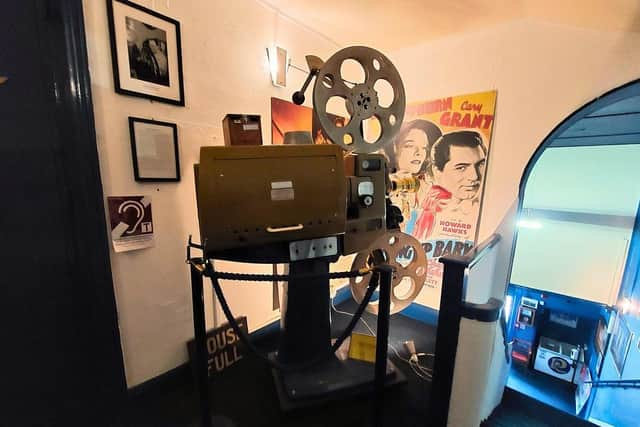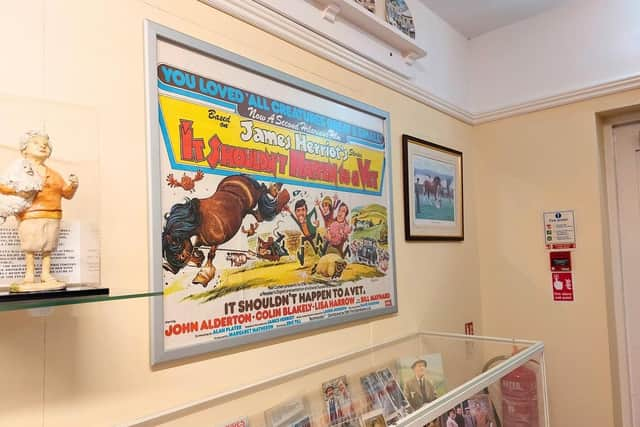Ritz Cinema: The Yorkshire cinema that dates back to the 19th century and often visited by vet and author of All Creatures Great and Small books in the 1940s
Ritz Cinema was originally built as a Mechanics’ Institute in 1820 where young trade people who left school at the age of 14 could continue their education. The building consisted of a lecture room, a library and reading room and even a laboratory; these buildings were quite common at the time but ceased operating in the early 1900s.
In 1912, Walter Power, a 24-year-old man from Darlington who moved to Thirsk, rented the room in the building where he set up a cinema and called it Thirsk Picture House. This was the era of silent films, a pianist would be playing at the front of the stage and a record player system would be installed.
Advertisement
Hide AdAdvertisement
Hide AdWalter, who operated the cinema until he died in 1934, added the upstairs balcony and ran the business through major developments in film, including the introduction of ‘the Talkies’ in 1927 when silent films were converted into films with sound.


Chairman of the volunteer group who currently run Ritz Cinema, John Potter, said: “It is one of the oldest operating cinemas in the country and one of the top 10 longest running cinemas in the country.
“We are a completely volunteer-run cinema.
“The cinema was closed down for a short period of time and the town council called a public meeting, the meeting was held here to find out whether there was the enthusiasm there was in the town to keep the cinema going.
“The place was packed out. The town council ran it for six months and then they just handed it over to the volunteer group and said ‘crack on, you're doing a good job’ and we’ve been running it ever since.”


Advertisement
Hide AdAdvertisement
Hide AdDuring the 1940s, Alf Wight and his wife Joan would regularly visit the cinema.
Mr Potter also knew Alf’s veterinary partner Donald Sinclair.
“They would come to the Ritz Cinema in the 1940s,” he said.
“His daughter was a year older than me at school and Jimmy Wight, I knew them very well.


“I wouldn’t say I knew Alf Wight very well but I knew Mr Sinclair very well. He was a customer of mine, I used to look after him, I had a garage in the town I used to look after his cars.
“Mr Sinclair was a complete character.”
Advertisement
Hide AdAdvertisement
Hide AdThe cinema was very popular and running smoothly until the Covid-19 pandemic when there was a pause in film production.
Mr Potter explained how despite many large chain cinemas going bust due to the pandemic, Ritz Cinema has managed to get through it.
“When Covid came along, they couldn’t make films and the lead span from starting to think about making a film and actually putting it on the big screen is four or five years,” Mr Potter said.
“Audience figures dropped by 75 per cent after Covid because people didn’t want to go out to a cinema but it’s gradually getting back up but it’s not there yet. We are financially reasonably well placed so we can weather the storm hopefully.
Advertisement
Hide AdAdvertisement
Hide Ad“We are just completely different. If you were running this as a business you wouldn’t do it. What profits we make we put back into the cinema like the new seats, the Dolby sound system, the new projector and the painting of the walls.
“But if we were paying managers and staff we wouldn’t be able to do it. For a town the size of Thirsk I think it’s probably the only way for a cinema to be operated, to have it run on a volunteer basis. It’s amazing the enthusiasm of the people that are volunteers, they’ve been doing it for years, some of these people. We have 20-year badges that we give out. They love it.”
The Ritz has seen it all, Mr Potter added.
“It’s seen the advent of cinema which started in 1912, there weren’t many cinemas built before 1911, so it’s seen it all; the start of silent movies, it’s seen the conversion to sound films in 1927.
“During the war there were lots of servicemen around Thirsk in airfields so it would be extremely busy during the war with servicemen off on nights.
Advertisement
Hide AdAdvertisement
Hide Ad“It continued in the fifties reasonably successfully by a couple of local people and obviously the big problem then was TV and then video. By the sixties, this was the only cinema left, certainly by the seventies, the other one at the end of the street had gone to be a bingo hall.”
Mr Potter shared his concerns for the future of cinema.
“The worrying thing is that people are making films direct for Netflix for streaming,” he said.
“10 years ago they made a film and then six months later they put it on a DVD and that would be a six-month gap which gave you that time for people to come to the cinema and see that film but then that gap gradually gets smaller and smaller.
“Now you’ve got a problem that they don’t even bother with the cinemas, they just put it straight onto streaming. One would hope that it doesn’t continue, you’d hope that the film companies have enough power to stop that happening.
“There’s nothing better than seeing a film with digital surround sound on a big screen, that is a real movie; watching it on your little 30-inch TV in the kitchen is not the same experience.”
Comment Guidelines
National World encourages reader discussion on our stories. User feedback, insights and back-and-forth exchanges add a rich layer of context to reporting. Please review our Community Guidelines before commenting.
